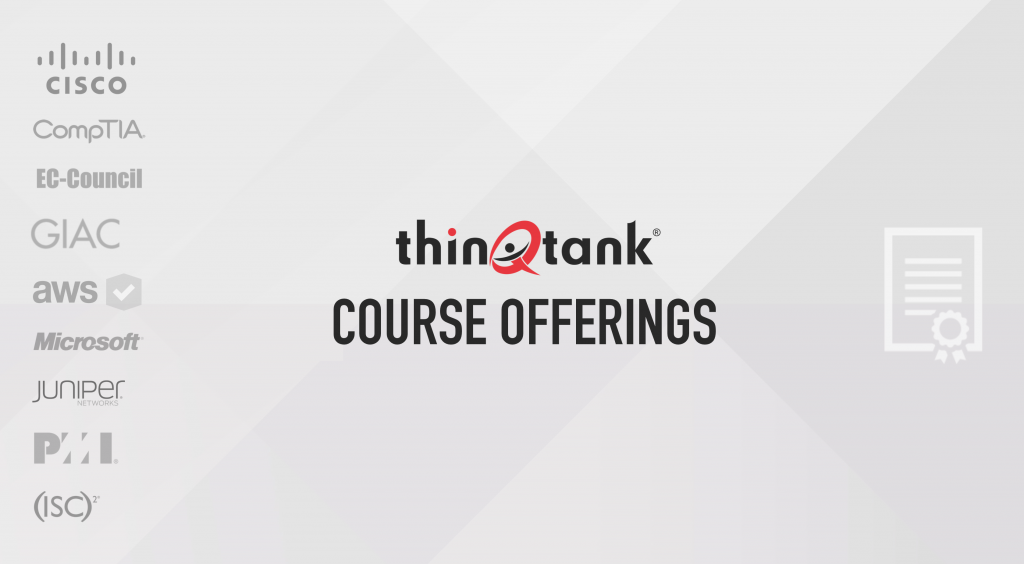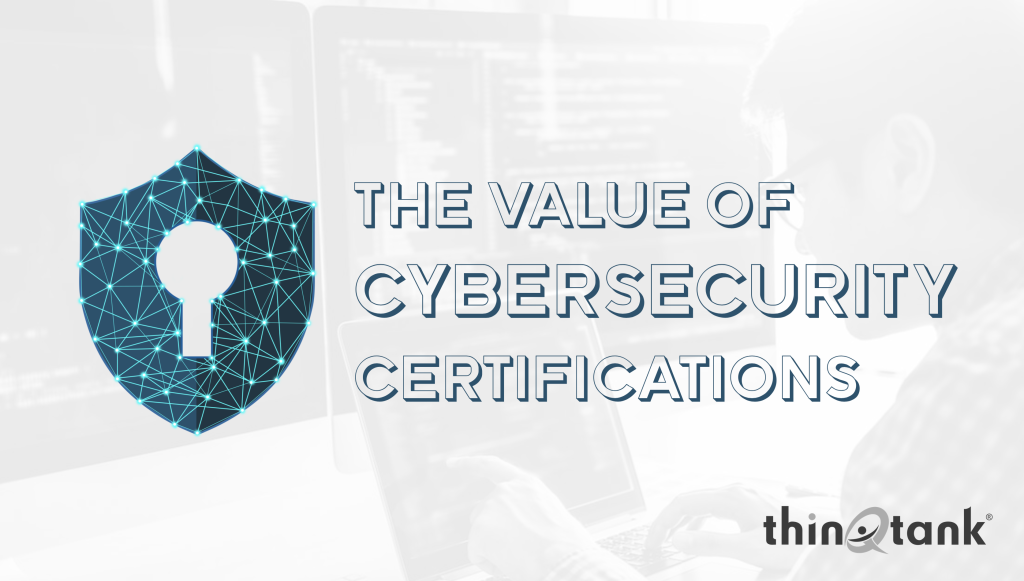The Value of Cybersecurity Certifications
A lot of people question whether cybersecurity certifications are worth the investment of time and money. Several arguments can be made against certifications, especially since there are so many certifications out there now and many have come and gone in terms of popularity over the years. With that said, they are still an intriguing option for the entry level cybersecurity professional or career changer looking to move into the cybersecurity field.
Are cybersecurity certifications worth the effort? Cybersecurity certifications are worth the effort if you use them as a supplement to other qualifications on your resume. Only having certifications on a resume is an indication to employers that your knowledge is not based on experience.
In other words, certifications are worth the effort, but they are not the only thing that will require your time and effort while you’re building your cybersecurity career. I am a big proponent of certifications because I’ve seen them help my career and the careers of many others, and they provide many benefits other than just the obvious potential financial impact. Let’s look at several of those benefits now.
The Benefits of Obtaining a Certification
Many people just starting out in cybersecurity assume that certifications are all about the money, and that can be true, but certifications can also provide several other benefits for your career.
1. Certifications can be a differentiator
Certifications can be a differentiator between you and someone else competing for the same position. I have witnessed a few occasions where an applicant with a certification or multiple certifications beat out a similarly-qualified but non-certified applicant, solely because of the certification. In these cases, the employer used the certification as the deciding factor. For those attending college, I always recommend that they also pursue a certification because the certification serves as a point of difference between them and other college graduates.
2. Certifications show a level of accomplishment and perseverance
Everyone knows that earning a certification takes work, so having them does convey a level of commitment to your career and knowledge base. This is especially important as you start your career and have less to rely on or talk to potential employers about. Having a certification shows you’re serious about your career field.
3. Most employers place high value on certifications
Not all employers are swayed by certifications, but there are still A LOT of employers that are impressed by them. Even the Department of Defense has established baseline certifications for their personnel, such as the (ISC)² CISSP and Cisco’s CCNA and CCNP certifications for many of the security and intelligence positions. Some employers even give preference to certifications over a college degree, so having a certification can get you noticed by them as well.
4. A certification can keep your employer on their toes
Several times in your career, you can followed the playbook of earning a certification on your own time and with your own money, all without letting your employer in on your intentions. After earning the certification, I can forward them the email confirmation or let them know verbally (or just hang it on your office wall without saying anything.) In these scenarios, you can start to see the wheels turn as they wonder when you completed the certification, why you’re improving yourself and what your intentions are. By obtaining a certification while you’re working, either in the cybersecurity field or not, obtaining a certification can get your employer to take notice. In many cases, this can give you leverage.
5. Certifications can be used to negotiate a raise or promotion
At some point, money must become a factor in any career decision, and here it is. Certifications can be helpful in providing a cybersecurity professional with leverage to negotiate a raise or promotion. This is why so many certification providers try to tie their certifications to pay rates. Of course, there are many other factors involved in whether a certification can lead to a raise for you but can be worth the effort to try to use a certification as a bargaining chip for higher pay.
6. Everyone who doesn’t have a certification wishes they did
This may be the best benefit of all. Wouldn’t you rather have the certification than not? Think about it. Is there any person out there without a degree that wouldn’t wave a magic wand to get a degree if they could? Is there any IT person out there who wouldn’t mind having an alphabet of certifications after their name? We all like these qualifiers, but many of us simply don’t have the drive to pursue them which makes them that much more valuable to those of us who do.
7. Employers often place more credibility in training programs that result in certifications
There are tons of online and in-person training programs available. Many of these training programs do not sufficiently prepare the participant for passing the certification exam. The challenge is that many of these programs are paper mills or brain dumps, where the student isn’t really given the time to learn anything. All too often, the students are not offered the opportunity to try to learn things hands on, therefore they are unable to pass the exam at the end of the training. Having a certification is often seen by employers as a higher validation of knowledge than just having completed some training, so it is vitally important to select a training organization that has a proven track record of success in training and certification.
What is the best way to prepare for a certification?
When preparing for a cybersecurity certification, be sure to use a variety of sources. Any given textbook, class or video course is going to be that provider’s interpretation of what is best able to prepare you for the exam. No one resource will be able to provide everything that you need for guaranteed success or will be able cover all of the exam topics in the best way.
With that in mind, a good approach for cybersecurity certification preparation is to take a course or video course first, and then reinforce that training with textbook study and hands on practice. Many certification books are available at public libraries. Check out those resources and use them to supplement the coursework you’ve already done. Once you become comfortable with the material, work through several practice exams. The best practice exam options explain the correct answers in detail, as well as the incorrect answers. Since many certification exams have fifty or more exam questions, you’ll want to work through several hundred practice questions to prepare and ensure you’ve seen enough question topics and question variety. Keep in mind that any questions on the exam are written from the perspective of how the test writer sees the content, and not necessarily what is done in any given operational setting. That means it’s best to think of the exam concepts from the point of view of the test writer. This is why so many certification preparation books say things like “CompTIA wants you to know…” or “Cisco considers…”.
How do I know when I’m ready to sit for the certification exam?
A great way to know you’re ready to sit for a certification exam is to evaluate if you know the material well enough to teach it to others. If you can fully explain the certification material to someone who is unfamiliar with that content, that is a good indication you know the material well enough to answer any questions that the exam may ask. As you near the end of your certification exam preparation, try explaining and teaching the material to someone you know. If you feel confident in explaining it to others, that should give you the confidence that you’re ready to sit for the exam.
If you would like to learn more about our Training and Certification Programs, we would love to hear from you! Give us a call at 855-TO-THINQ (855-868-4467) or email website@thinqtanklearning.com.
CyberSecurity Training Opportunities:
(ISC)² CISSP
When: May 9 – 15 2022
Where: Herndon VA and Live Online
Request Information HERE
Cisco CCNA v1.0
When: May 23 – 27 2022
Where: Herndon VA and Live Online
Request Information HERE
Cisco CCNP Enterprise
When: June 6 – 12 2022
Where: Herndon VA and Live Online
Request Information HERE



